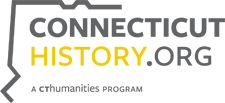How do we determine what news is “Real”—and what news is “Fake”?
Where do we turn today for news that we can trust? How is technology changing the way we consume information? In 2018, Connecticut Humanities conducted a year-long exploration about why people are becoming increasingly distrustful of the news media—and how we could all become more confident consumers of information.
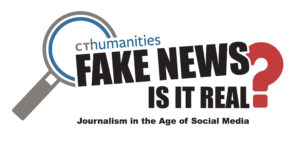
About the Program
Journalism is critical to a healthy democracy. For citizens to make informed decisions they need reliable news and information. Journalism plays an integral role in this process by improving knowledge, helping build consensus, and holding government officials accountable. But is traditional journalism still relevant in today’s era of “Fake News”?
In 2018, Connecticut Humanities (CTH) facilitated a statewide exploration about why people are distrustful of news, how technology is changing information consumption, and how citizens can better evaluate news sources. The aim was to engage and inform Connecticut’s citizens about the essential role journalism plays in helping us understand our world.
The initiative included:
- A moderated panel discussion with Pulitzer Prize-winning journalists (view on YouTube and listen to the podcasts, Part I and Part II).
- Interviews with Pulitzer Prize-winning journalists and Connecticut citizens conducted and recorded by students from Capital Community College and Middlesex Community College (view on YouTube).
- Discussion and workshop sessions for teachers at the 2018 Northeast Regional Conference for the Social Studies.
- Small project grants to encourage Connecticut cultural organizations to continue the discussion in their own communities (see more information on grants below).
Thanks & Appreciation
Connecticut Humanities thanks Capital Community College, Middlesex Community College, and the Connecticut State Department of Education for partnering with us on this important project.
This program was part of the “Democracy and the Informed Citizen” initiative, administered by the Federation of State Humanities Councils. The initiative seeks to deepen the public’s knowledge and appreciation of the vital connections between democracy, the humanities, journalism, and an informed citizenry.
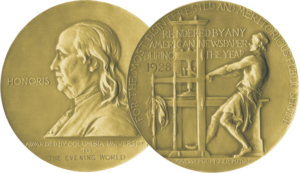 We thank The Andrew W. Mellon Foundation for their generous support of this initiative and the Pulitzer Prizes for their partnership.
We thank The Andrew W. Mellon Foundation for their generous support of this initiative and the Pulitzer Prizes for their partnership.
Journalists
CTH was proud to partner with Pulitzer Prize and other award-winning journalists:
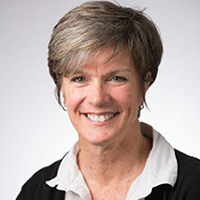
Susan Campbell
Susan Campbell teaches courses in journalism and mass communication at the University of New Haven. She is a columnist for The Hartford Courant, and the website, Connecticut Health Investigative Team, and an award-winning author of Dating Jesus: Fundamentalism, Feminism, and the American Girl, and the biography, Tempest-Tossed: The Spirit of Isabella Beecher Hooker.
For more than a quarter-century, she was a staff columnist at The Hartford Courant, where her work has been recognized by the National Women’s Political Caucus, New England Associated Press News Executives, the Society for Professional Journalists, the American Association of Sunday and Feature Editors, the National Society of Newspaper Columnists, and the Sunday Magazine Editors Association. She returned as a freelance columnist in March 2018. Her column about the shootings at lottery headquarters in March 1998 was part of The Courant‘s Pulitzer Prize-winning coverage.
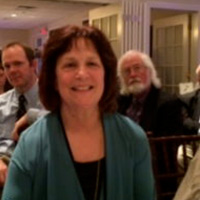
Lynne DeLucia
Lynne DeLucia is the editor and co-founder of the Connecticut Health Investigative Team, an in-depth news website focusing on issues of health and safety. Prior to launching C-HIT.org in December 2010, Lynne worked at The Hartford Courant for 17 years, holding the positions of assistant bureau chief, bureau chief, state editor and an assistant managing editor. Lynne was the supervising editor of The Hartford Courant’s team coverage of the Connecticut lottery shootings, which won the 1999 Pulitzer Prize for breaking news. Before joining The Courant, Lynne worked at the New Haven Register as a reporter and city editor. Lynne is a board member of the New England First Amendment Coalition. In 2014, Lynne was inducted into the Society of Professional Journalists CT Chapter Hall of Fame and also received the Judith Vance Weld Brown Spirit Of Journalism Award from the New England Society of News Editors. In November 2016, she was honored by the Connecticut Women’s Hall of Fame for C-HIT’s coverage of women’s health issues.

Mike McIntire
Mike McIntire is an investigative reporter, author and editor. As a member of the investigative unit at The New York Times, he shared the 2017 Pulitzer Prize for reporting on covert Russian interference in the U.S. presidential election. Since joining The Times in 2003, Mike has produced in-depth stories on a wide range of subjects, including presidential politics, terrorism and Wall Street bailouts. His investigation of corruption in college sports was a finalist for the Pulitzer Prize and was the basis for his book, Champions Way: Football, Florida and the Lost Soul of College Sports, published by W.W. Norton in September 2017. Earlier in his career, he was the investigative editor at The Hartford Courant, where he was part of a team that won a Pulitzer for breaking news reporting and was a Pulitzer finalist for investigative reporting on medical malpractice. He has also been a national writer at the Associated Press in New York, and a reporter and editor at several Connecticut newspapers.
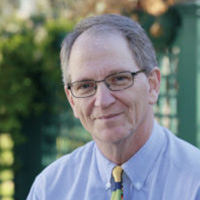
Mike Stanton
Mike Stanton is an associate professor of journalism at the University of Connecticut and a former investigative reporter at The Providence Journal, where he shared a Pulitzer Prize for investigative reporting. He is the author of the New York Times bestseller The Prince of Providence, about Buddy Cianci. His next book, Unbeaten: Rocky Marciano’s Fight for Perfection In A Crooked World, will be published in June by Henry Holt. His work has appeared in The New York Times, The Boston Globe, Columbia Journalism Review and Yankee Magazine. A native of Windsor Locks, Connecticut, he graduated from Syracuse University, holds a master’s degree from Northwestern University’s Medill School of Journalism and was a Knight fellow at Stanford University.
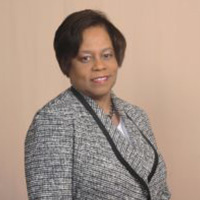
Gine Seay
Gina Seay is a senior level communicator, currently transitioning to a new communications career after having served in various editing roles, including content manager of the lifestyles and entertainment department at The Hartford Courant. The native Virginian and Boston University graduate was also a reporter at newspapers in Oklahoma and Texas, including the Houston Post and Houston Chronicle.
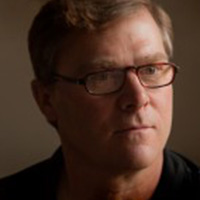
Steven G. Smith
Steven G. Smith is a Pulitzer Prize-winning multimedia photojournalist and associate professor of visual journalism at the University of Connecticut. For more than 25 years, Steven G. Smith’s images have graced the pages and the airwaves of the most prominent media organizations, including The New York Times, Time, USA Today, ABC News, National Geographic Channel, ESPN The Magazine, U.S. News and World Report, CNN, Public Broadcasting Service, Time.com, Smithsonian Magazine, the Associated Press, MSNBC.com, and Life. Smith has worked as a freelancer for top media outlets, as well as holding staff positions at distinguished institutions, including the E.W. Scripps Company, The Commercial Appeal, The Albuquerque Tribune and The Rocky Mountain News. Nominated for the Pulitzer Prize four times, Smith won the award in 2002 as part of a group of photographers who contributed to a large photo essay on the Colorado Wildfires for The Rocky Mountain News. Smith received a second nomination that year as well — for his visual reportage of the 2002 Salt Lake Olympics.

Larry Rifkin
Moderator
Larry Rifkin was the chief programming executive for Connecticut Public Television for over a quarter-century, overseeing the production of state and national productions, which amassed nearly 50 regional Emmy Awards over that period. He is best known for bringing UConn Women’s Basketball to statewide audiences and Barney the Dinosaur to national audiences. During his tenure, he developed The Connecticut Experience series of documentaries in partnership with the Connecticut Humanities Council. That series covered a broad sweep of Connecticut history and politics. In 2006, Mr. Rifkin was inducted into the Boston-New England Emmy Silver Circle for lifetime achievement. He has since gone on to return to his first love, radio, where he hosted a talk program for seven years on 1320 WATR in Waterbury and now hosts and produces the podcast America Trends (americatrendspodcast.com) on emerging developments in our society and politics. He is a Phi Beta Kappa graduate of the University of Connecticut and has a master’s degree in Corporate and Political Communication from Fairfield University.
Grants
Fake News: Is It Real? Quick Grants were small implementation grants for projects that examined the issue of fake news, either currently or historically, and contextualized its lasting impact on our state.
These grants were used to support community-oriented programs that explored the issue of fake news at these organizations:
Connecticut Historical Society
CHS hosted a lecture by Professor Robert W. T. Martin of Hamilton College on December 10, 2018. Dr. Martin, who has written extensively on the role of newspapers in the Early American Republic, discussed Alexander Hamilton’s relationship with the press to shed light on how the founding generation grappled with the problem of “fake news.”
Connecticut’s Old State House (Connecticut Public Affairs Network)
OSH received funding for a special, two-hour Conversation at Noon entitled: “Navigating the News: Past & Present.” The program focused on the antecedents of “fake news” with a panel of experts: Dr. Barry O’Connell from Amherst College, Adam Chiara from the University of Hartford, and Richard Hanley from Quinnipiac University. After each spoke, journalist Diane Smith moderated a lively panel discussion between the speakers and the audience. You can watch a video of the event here.
Fairfield Museum
Fairfield Museum used its grant funding for a series of programs designed for educators, high school students, and the general public. The museum hosted several professional development workshops for teachers where they learned how to use curriculum from Connecticut Public Media and Newseum educators. Programs for the public covered how to be a savvy media consumer, digital citizenship, and “The media and mid-term elections.”
New Haven Public Library
NHPL presented “Fake News Month” in October 2018, with programs and films offered at several of their branches. They hosted four evening events, including a popular panel discussion entitled “Fake News Is Not New! The Historical View,” and a film screening of “The Brainwashing of My Dad” followed by a Q&A with director Jen Senko. In addition, the library created resources on how to identify and combat fake news to hand out to patrons.
Prospect Library
The Prospect Library hosted a conversation on fake news with Dr. Paul Levinson of Fordham University and Larry Rifkin, former chief programming officer for Connecticut Public Television. Both answered questions from the audience. Listen to a podcast recording of the event here.
Resources
CTH and its project partners have compiled a list of resources helpful for anyone who wants to learn how to identify fake news or review the issue in more depth. The list also includes curriculum links for interested teachers.
What Can You Do About Fake News? Here are some steps and resources to get you started.
Learn to recognize it:
- One-page graphic from The International Federation of Library Associations and Institutions
- One-page graphic from SAGE Publishing
- Short video on five ways to spot fake news from The News Literacy Project
Don’t share without verifying:
When in doubt, check it out:
- Factcheck.org
- PolitiFact.com
- Snopes.com
- Tineye.com (for photos)
Get your information from more than one source:
Support your local paper & demand local news from it.
Accept that you are part of the problem (It’s okay – we all are.)
Inoculate yourself:
- Play this fun game
- Study – Older people share the most fake news
- Study – On Twitter, false news travels faster than true stories
If you see something, say something:
- Report fake news to the social media platform hosting it.
- Let your friends know if they are sharing fake news.
Teach your children well (more resources for educators):

